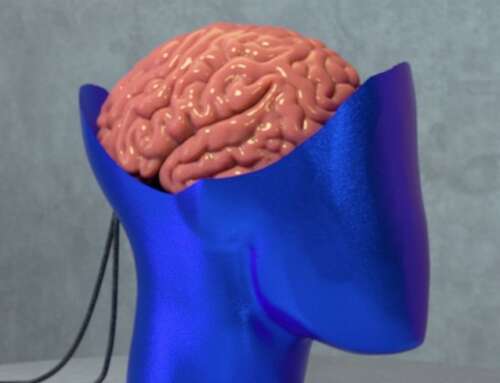In last month’s newsletter we looked at how the powerful chemicals that drive stress responses in the mind and body can be very detrimental to young people. Before looking at how to combat stress and at the risk of appearing repetitive it is pertinent to reiterate a few points;
- Stressors are highly individualistic in nature but engage similar physiological responses once the brain recognises something as stressful.
- Young people are more vulnerable to the debilitating effects of stress due to their developing brain and lack of skills for dealing with stress.
- Stressed children and adolescents cannot learn.
- Prolonged or chronic stress can result in long term social, emotional and intellectual difficulties as well as actually changing structures in the brain.
Equally important to remember is that in order for the brain to start a stress response it must deem a situation to be Novel and/or Unpredictable and/or Threatening and/or beyond one’s Sense of control. Therefore a key questions must be what can be done to ensure that the young people around us do not go N.U.T.S. with stress?
One of the first things we can do is recognise that young people and adults view the world and ‘stressors’ very differently. Quite often adult perspectives do not align with a young person’s view of what is stressful and as such communication is a must. Young people internalize stress differently and as such it is very important to remember that stress is in the eye of the beholder. Moreover, it is important to recognise that young people of all ages do stress and we do not often see the signs or we shrug them off as something ‘they will get over’. To that end it is critical to bear in mind that communication is key and that we watch and listen with intent. Young people are not always good at articulating the nature of what might be stressing them but their body language always gives things away…negative facial mannerisms, lethargy, anxiety, fear, prolonged sadness or depression are tell-tale signs of stress.
Secondly, do not pass on your stress to others. Young people are very perceptive and their own stress levels can be exacerbated when their parents or the important adults around them are stressed. Concurrently, most young people also learn how to deal with stress from following the examples their parents and other role models display. Young people need to be taught how emotions work and how to diminish feelings of anger and frustration and as such they will mimic the behaviour of the adults around who display those same emotions.
Finally, combating stress is not as difficult as it may seem. Some of the simplest ways to counteract stress include regular exercise, healthy eating, plenty of sleep and the fostering of positive social relationships. Couple those simple remedies with a home environment that is safe, secure, respectful and loving and the powerful hormones involved with stress are less likely to be anything more than a minor discomfort. Remember, healthy social and emotional development is a precursor not only to academic achievement but also to a life devoid of serious physical and mental illness. In this sense, parents and those who work with young people should do everything possible to ensure that children feel safe, secure, loved and able to get help when they need it. So don’t stress, just do what you can to help young people and yourselves diminish the chances of going N.U.T.S.
Michael C Nagel PhD
Dr Michael C Nagel is an Associate Professor in the School of Science and Education at the University of the Sunshine Coast. He teaches and researches in the areas of cognition, behaviour and learning and human development and early learning. He will be describing new developments in our understanding of the teenage brain at the Generation Next Mental Health & Wellbeing seminars being held around Australia in 2012 Register at Mental Health & Wellbeing of Young People.
Check your calendar and plan to attend an important Australian event!
The University of the Sunshine Coast and its sponsors cordially invite you to the 1st Australian Biennial Conference on the Brain and Learning – Building Healthy Minds. Held in the beautiful city of Brisbane, this interdisciplinary conference focuses on improving the lives of young people by making cutting-edge research in neuroscience, psychology, education and health understandable and applicable to those who work with young people in multiple contexts on a daily basis. With international and national speakers presenting insights into their work and research this inaugural conference will provide delegates with an opportunity to expand their own knowledge and understanding relating to Building Healthy Minds within their own professional practice. Check the website to see the list of amazing speakers and full details of the conference at:







Leave A Comment